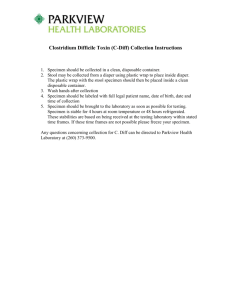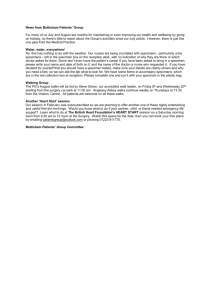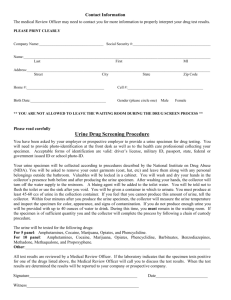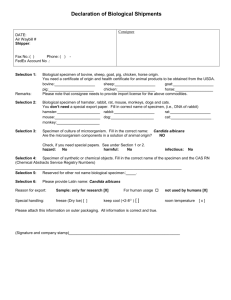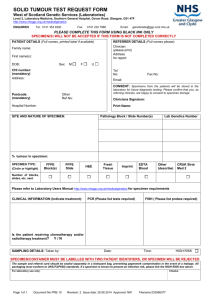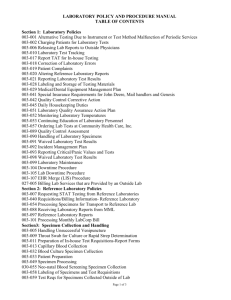Dilute Specimen - Corporate Healthcare
advertisement
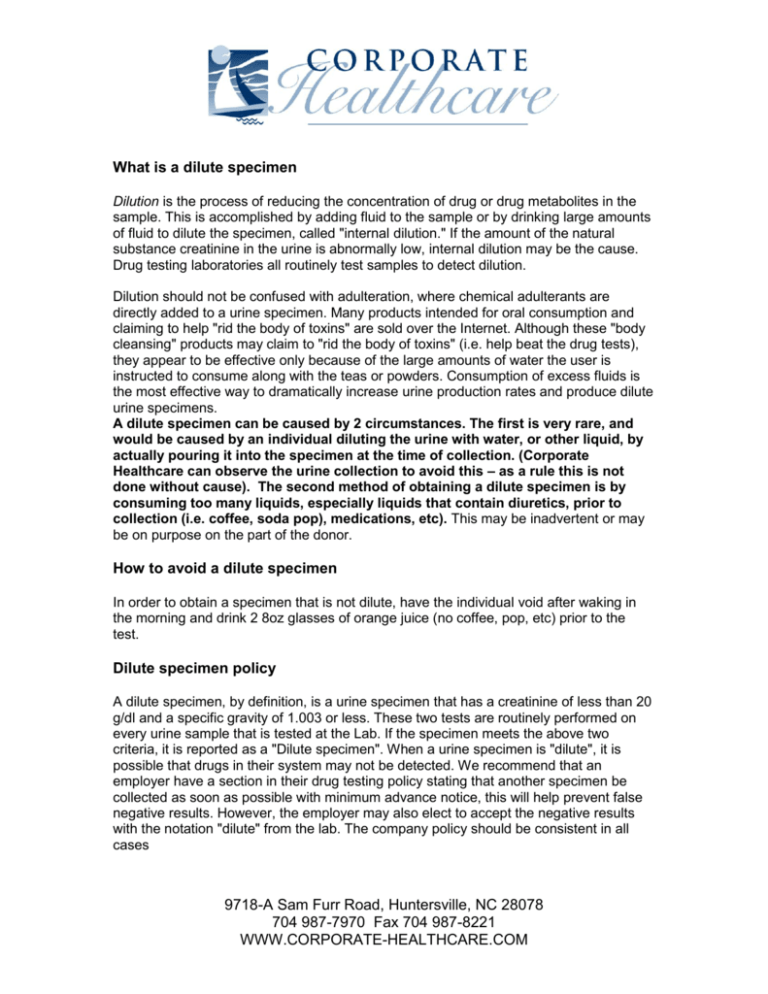
What is a dilute specimen Dilution is the process of reducing the concentration of drug or drug metabolites in the sample. This is accomplished by adding fluid to the sample or by drinking large amounts of fluid to dilute the specimen, called "internal dilution." If the amount of the natural substance creatinine in the urine is abnormally low, internal dilution may be the cause. Drug testing laboratories all routinely test samples to detect dilution. Dilution should not be confused with adulteration, where chemical adulterants are directly added to a urine specimen. Many products intended for oral consumption and claiming to help "rid the body of toxins" are sold over the Internet. Although these "body cleansing" products may claim to "rid the body of toxins" (i.e. help beat the drug tests), they appear to be effective only because of the large amounts of water the user is instructed to consume along with the teas or powders. Consumption of excess fluids is the most effective way to dramatically increase urine production rates and produce dilute urine specimens. A dilute specimen can be caused by 2 circumstances. The first is very rare, and would be caused by an individual diluting the urine with water, or other liquid, by actually pouring it into the specimen at the time of collection. (Corporate Healthcare can observe the urine collection to avoid this – as a rule this is not done without cause). The second method of obtaining a dilute specimen is by consuming too many liquids, especially liquids that contain diuretics, prior to collection (i.e. coffee, soda pop), medications, etc). This may be inadvertent or may be on purpose on the part of the donor. How to avoid a dilute specimen In order to obtain a specimen that is not dilute, have the individual void after waking in the morning and drink 2 8oz glasses of orange juice (no coffee, pop, etc) prior to the test. Dilute specimen policy A dilute specimen, by definition, is a urine specimen that has a creatinine of less than 20 g/dl and a specific gravity of 1.003 or less. These two tests are routinely performed on every urine sample that is tested at the Lab. If the specimen meets the above two criteria, it is reported as a "Dilute specimen". When a urine specimen is "dilute", it is possible that drugs in their system may not be detected. We recommend that an employer have a section in their drug testing policy stating that another specimen be collected as soon as possible with minimum advance notice, this will help prevent false negative results. However, the employer may also elect to accept the negative results with the notation "dilute" from the lab. The company policy should be consistent in all cases 9718-A Sam Furr Road, Huntersville, NC 28078 704 987-7970 Fax 704 987-8221 WWW.CORPORATE-HEALTHCARE.COM
